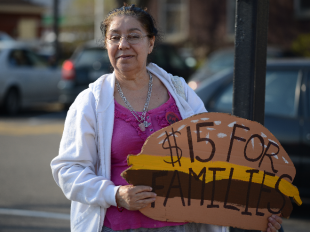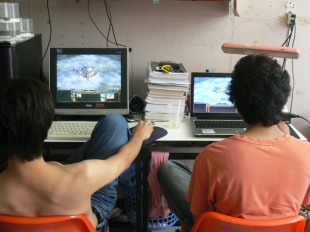The Declaration of Independence states that our inalienable rights include “life, liberty, and the pursuit of happiness.” Life and liberty are easy to understand, but that last phrase is less intuitive. How can people have a right to strive for happiness?
Learn More
Uniting to Fight Poverty: A TED Talk
How do we solve problems like poverty with so much political polarization?
Welcome to the Pursuit
To pursue our happiness, to achieve our liberty, and indeed to find fulfillment in our lives, we must start with a moral consensus, a fundamental truth around which we all revolve. Think of an atom. The outer field of electrons is full of chaotic activity. Electrons are rapidly orbiting and moving in a constant buzz. What contains that chaos and gives it structure? The fact that the whole chaotic cloud orbits one central nucleus.

Major Life Decisions: How Much Influence Does a Coin Toss Have?
Steven Levitt of “Freakonomics” fame recently did a great study looking at the influence of a coin toss on people’s likelihood of making certain decisions. His results suggest that people leave a chunk of potential happiness untapped simply by tethering themselves to the status quo.
read more
Do Presidential Debates Matter? Probably Sooner Than Later
How much of a difference do these election debates actually make? Do presidential debates matter? Is all the commotion justified? What do the hard data say? I dug into the research. As it turns out, the answer academics have come up with is a go-to favorite among ivory-tower types. Do the debates make a difference? It depends.
read more
Florida: Study Shows Impact of Marriage on Children’s Graduation Rates
Brad Wilcox at the Institute of Family Studies does some great research, and part of its greatness is that his results force policy makers to confront wisdom that is sometimes hard to hear, but ultimately super helpful in developing action plans.
The latest is a study he did on Florida schools, called Strong Families, Successful Schools, which builds on conclusions reached in a recent MIT study of 1 million Florida school children.
read more
Why Don’t Families With Housing Vouchers Move to Better School Districts?
If you have a housing voucher that you’re allowed to use anywhere, why wouldn’t you situate yourself near a good school for your kids? That’s the question that a new study dives into after learning that “voucher holders do not, on average, use their vouchers to reach better schools.”
read more
Official Poverty Rate Declines in 2015. Can Washington Do More?
The official poverty rate dropped from 14.8 percent in 2014 to 13.5 percent in 2015, and both food insecurity and very low food security significantly declined as well. The fact that we are just now seeing progress, as caseloads for major assistance programs decrease, illustrates that a strengthening economy that gets more Americans working is the most essential ingredient for fighting poverty. Strategies from Washington can further push down the poverty level if they’re addressing the right causes of poverty, which they currently don’t.
read more
Harvard Business School Study Blames Gridlock for Lower Economic Growth
In a world where over-reliance on government to steer, monitor, and correct private behavior has sucked the courtesy out of human discourse, it should come as no surprise that one of America’s largest educational institutions is reporting that political gridlock is hampering economic growth.
read more
How to Reinvigorate the Marketplace of Ideas
The marketplace of ideas can only become less toxic from the bottom up. Fixing our politics begins with each of us treating our political adversaries with greater dignity and more respect.
read more
15 Years After 9/11. It’s Like Remembering Yesterday
Do you remember where you were on Sept. 11, 2001, when you heard that the first airplane hit the World Trade Center? You wouldn’t be alone. A Pew Research Center released a poll recently saying 91 percent of Americans recall exactly what they were doing at that moment.
read more
How Should the On-Demand Economy Protect Workers?
Are you a worker in the on-demand economy? Do you pick the hours you want to work, change who you occasionally work for from time to time, and get most of your work through the matching of your services through technological apps and other forms of digital on-demand...
read more
The Poverty Debate: Why We Don’t Agree on The Same Set of Facts
The political realm is a great place to toil if you aspire to be an armchair pugilist. Without much personally at stake in the outcome of the poverty debate, it is easy to pick a side and argue statistics and facts. But in the midst of all the fighting are real...
read more








